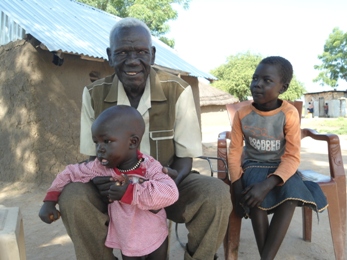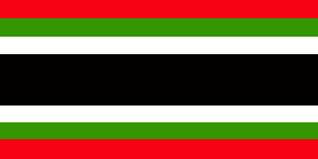South Sudanese citizen who delivered anti-unity letter in 1955
September 23, 2012 (KAMPALA/BOR) – Isaiah Ayuen Deng Kuai was a primary four pupil at Malek Elementary school in 1955, a year before Sudan gained independence from British colonial masters, when he was asked to deliver a letter written by Southern Sudanese politicians to the Governor General.

“While people were waiting for the Governor General, something happened, what we call bewilderment among the members,” said Ayuen.
Job Adier, the head teach of Malek Elementary school in 1955, was in Juba when then Southern Sudan politicians were “demoralized,” Ayuen recalled.
Adier proposed that a schoolboy who is also the leader of a music band in Malek be given the letter and would present it to Sir Alexander in Bor in May 1955.
The conference unanimously agreed and sent a delegate to meet the schoolboy.
“On 22nd May 1955, I was summoned to the staff office… and introduced to the delegate from Juba and I was given the letter, I read and gave it back the deputy headmaster was to accompany us to Bor town,” he said.
The Governor addressed the rally in Bor on 25 May 1955 and Ayuen gave him the letter.
“When my turn came as pirika-ceta [the Red chilli music band], I went before them, to read the letter written by teachers of Malek and I then I pulled out the letter from Juba [written by Southern Sudan politicians], put them together and I pierced them into the eyes of the lion,” Ayuen said, laughing.
But he had to pay for his bravery at the time as many of the northern Sudanese, commonly known as “Arabs” in the South, the leaders-in-the-waiting after British, were against semi-autonomous Southern Sudan. Osman Abdhalla, the district commissioner of Bor ordered his arrest only to be saved by Sir Alexander.
“After the ceremonies, I had to pay for that. Whenever I came to Bor town from Malek, Arab police beat me,” he recalled.
The delivery of the letter to Governor General did not change the status of Southern Sudan and on 1 January 1956, Sudan became independent but rebellion was underway in Torit.

From 1972 to 1983, when the peace partially halted the war between south and north Sudan, Ayuen served in various posts including being a commissioner of Bor district that encompasses the current Bor, Twic East and Duk counties.
Today, the former commissioner lives in a small grass thatch hut in Bor town. This part of the town is not surveyed and like other citizens, he might be displaced anytime in future under the current system of land allotment.
Ayuen told the Sudan Tribune of his happiness about the independence South Sudan gained in July 2011. He lost his sight in the 1980s and never participated directly in the 1983—2005 north-south Sudan war. The current leaders of South Sudan are drawn from former rebel fighters and Ayuen believes this means he is unlikely to seen favourably by them.
“Very terrible. Very terrible. Of course being a blind man, I could not join the SPLA [Sudan People’s Liberation Army that fought two decade war with north Sudan],” he said when asked whether his efforts for his country.
Born in 1948, Ayuen still remembers his childhood. He was raised by Bishop Daniel Deng Atong and joined school at an early age. He went to Atar Primary school but was dismissed for leading a strike caused by President Ibrahim Abuod’s decision to declare Sunday a working day. He was recalled to Malakal later and allowed to sit for secondary school entry exams and a won a place in Rumbek secondary school.
He declined the government offer and instead went to Khartoum and escaped to Ethiopia where he joined secondary school as well as being a member of the Anya Anya One rebellion. He continued with his studies in Dar-al Salam University in Tanzania with the founder of Sudan People’s Liberation Movement (SPLM), the late John Garang.
(ST)
